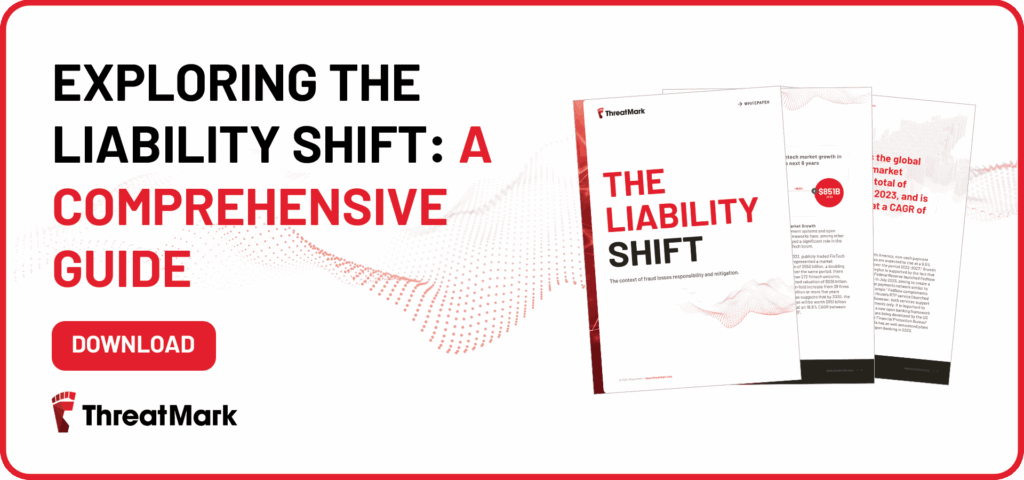
What the UK PSR Liability Shift Means for Banks and Fraud Prevention
As of October 7, 2024, the UK Payment Systems Regulator (PSR) introduced a liability shift that requires banks to reimburse most victims of Authorised Push Payment (APP) scams within five business days.
This move aims to address the growing issue of APP fraud, which has cost UK consumers billions over the last few years. The mandate is a significant development for the UK financial system and is being closely watched by other regulators and industry stakeholders across the globe.
Financial institutions must now grapple with not only the operational challenge of complying with these new requirements but also the strategic opportunity to bolster their fraud prevention capabilities.
Industry Reception: A Mix of Caution and Optimism
The broader market reaction to this liability shift has been mixed. While the policy has been welcomed by consumer protection advocates, there are concerns within the financial sector about its potential impact on operational costs and fraud prevention strategies. Several industry voices have weighed in:
- The UK Financial Ombudsman Service (FOS) has expressed support for the policy, as it aligns with its goal of providing better outcomes for victims. The FOS will handle claims exceeding the £85,000 cap, adding another layer of consumer protection.
- The Financial Conduct Authority (FCA) has also voiced approval, noting that the shift represents a much-needed evolution in how banks handle fraud. They emphasize that this move will push financial institutions to adopt more robust fraud prevention systems to avoid significant financial losses.
- Internationally, other regulators are monitoring the UK’s approach. In the European Union, conversations around fraud protection are intensifying as the new Instant Payments Directive nears implementation. There are ongoing discussions about whether the EU should adopt similar reimbursement frameworks for APP fraud across its member states.
- Industry Associations such as UK Finance have been cautious, raising concerns about the long-term sustainability of the policy. They argue that while consumer protection is paramount, the onus on banks to rapidly reimburse victims could result in increased operational costs if fraud detection capabilities are not significantly improved.
Overall, the liability shift is seen as a progressive step, but it highlights the need for financial institutions to strike a balance between rapid reimbursement and enhanced fraud prevention efforts.
Moving Beyond Compliance
While complying with these new rules is essential, banks have the opportunity to take this a step further by improving their fraud detection and prevention capabilities. With the £85,000 reimbursement cap and tighter timelines for investigating claims, banks must invest in more effective fraud detection systems to reduce the frequency of claims and the operational burden of reimbursements.
Proactive steps include:
- Behavioral analytics to detect unusual patterns in user behavior.
- Real-time transaction monitoring to identify and stop suspicious payments before they are completed.
These measures will not only help banks meet regulatory expectations but also reduce financial losses associated with APP fraud.
Enhancing the Customer Experience
The PSR’s new mandate requires banks to reimburse victims quickly, but it’s equally important to focus on preventing fraud from happening in the first place. Providing customers with strong protection and clear communication will lead to a better experience overall.
Key areas for banks to focus on:
- Streamlining authentication: Ensuring fraud prevention tools don’t create unnecessary friction for legitimate users.
- Educating customers: Providing clear guidance on avoiding fraud and understanding how the reimbursement process works.
Banks that successfully integrate these elements into their fraud prevention strategy will not only comply with regulations but also enhance customer trust and loyalty.
Collaboration with the Wider Ecosystem
HSBC and other leading banks have called for tech companies to share the responsibility for fraud prevention, pointing out that many APP scams originate from online platforms such as social media or messaging apps. Collaboration between banks, tech companies, and law enforcement is essential to fully address the root causes of fraud.
Furthermore, partnerships across the financial ecosystem, such as sharing threat intelligence and collaborating with fintech providers, will be key to building a more resilient defense against fraud.
Looking Ahead: Long-Term Considerations
The PSR has committed to reviewing the reimbursement cap after 12 months, assessing its impact on fraud prevention efforts and the solvency of financial institutions. In the meantime, banks should focus on strengthening their fraud detection and prevention strategies. By investing in more advanced technologies and refining their internal processes, financial institutions can reduce the burden of reimbursements while staying compliant with the new regulations.
In the long term, these changes will likely influence global regulatory approaches to fraud protection. As the financial landscape continues to evolve, staying ahead of regulatory shifts and investing in fraud prevention measures will be critical to maintaining consumer trust and operational efficiency.
For a more detailed analysis of the PSR liability shift and how to enhance your fraud prevention strategy, download our whitepaper:



